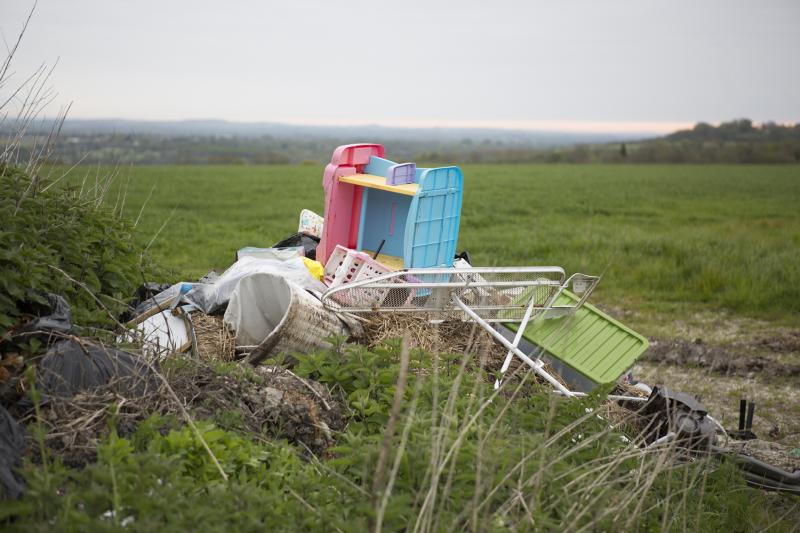Farmers warned of 'hidden financial cost' of flytipping

An agricultural expert is warning of the hidden financial and emotional cost of flytipping after it was revealed incidents reported to England’s councils in 2018/19 has risen to over one million incidents.
New figures from Defra showed that 1,072,431 incidents of fly-tipping were dealt with by local authorities in the past year, an 8% rise on the 998,000 in 2017-18.
Of the one million incidents, 3,395 were reported as taking place on agricultural land last year – 121 more incidents than the previous year.
But Hannah Hubbard, of Farmers and Mercantile Insurance Brokers (FMIB), said the true scale of flytipping on England’s farmland is not reflected in the figures, as the statistics excludes the majority of private-land incidents.
“Flytipping is a scourge on the farming community,” she said. “Councils spend millions every year on clean-up costs but private land-owners, such as farmers, are suffering in silence with little or no assistance or recourse.
“The burden of dumped rubbish falling squarely with farmers as they are liable for clearing it up at their own expense, or face prosecution.
“Moving the mess on to public land will not solve the issue, but exacerbate it, which farmers need to be mindful of.
“In one incident we encountered, a farmer was unwittingly branded a flytipper after falling victim to the crime.
“After finding tyres dumped over his hedge, he moved them on the other side of the hedgerow and informed the authorities.
“Although the waste was collected, he was slapped with a prosecution order for flytipping.
“Farmers are already faced with a myriad of difficulties, from economic uncertainty to market volatility, and having to fork out dealing with someone else’s mess just compounds these stresses.”
According to the latest National Rural Crime Network, flytipping is now the most common crime experienced by ‘specific rural business owners’, mainly farmers.
For victims of flytipping the average financial impact to the business owner was over £1,000 a time.
Despite the increasing blight of flytipping, Ms Hubbard said that a small number of farmers make claims for flytipping, as many have the kit and manpower to deal with such incidents.
But she stressed the importance of having sufficient protection for farming businesses, particularly in the case of repeat offences.
Many combined farm insurance policies cover the cost of flytipping – generally around £5,000 per incident and capped at £15,000.
Ms Hubbard added: “If a farmer’s land becomes a flytipping ‘hotspot’, costs can quickly escalate and the crime can soon turn from being a nuisance to crippling.”
She explained that, although any farmer can fall victim, there are a number of preventative steps farmers can take to deter would-be flytippers from targeting their land.
“Ensure that fields, particularly those by the roadside, are secure, with locked gates where possible and create physical barriers, such as earth mounds, boulders and tree trunks, around the perimeter so that vehicles cannot gain access,” she said.
“Flytippers do not wish to draw attention to themselves, so ensure good visibility, by cutting back hedges and installing exterior lighting in strategic areas.
“If you witness someone in the act of flytipping, do not approach them as this can pose a safety risk.
“If you fall victim to a flytipping incident, be cautious, as the waste could be potentially hazardous.”
Thousands of the Defra incidents reported this year included asbestos, clinical and chemical waste.
Ms Hubbard said farmers should secure the waste, so that animals and the public are not exposed to potentially dangerous material.
“Record as much detail as possible, take photos and report the incident to your local council,” she added.
“Finally, and most importantly, make sure that any rubbish dumped on your land is disposed of properly.
“Only use reputable, registered waste companies to help with disposal, and if you take the waste to a licenced waste site yourself, make sure you are registered as a waste carrier.”








